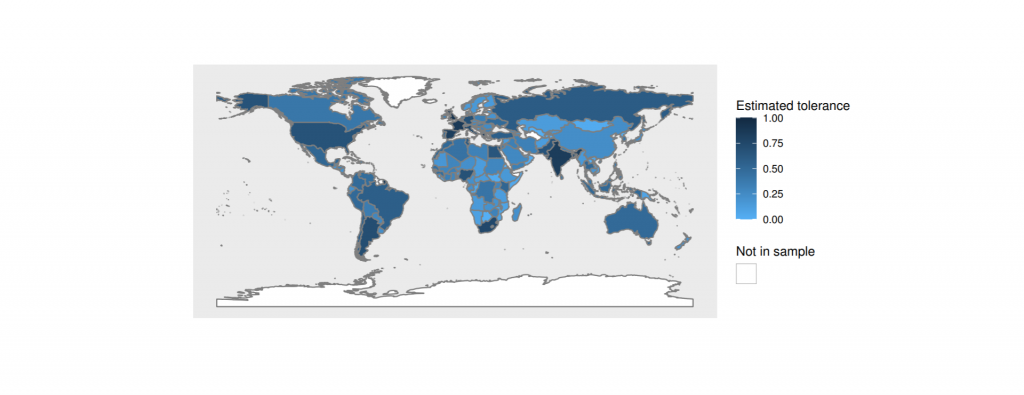This working paper by researchers affiliated with Brown University, the University of Michigan, the University of North Carolina at Chapel Hill and NBER explores regime tolerance to protest activity:
We develop a measure of a regime’s tolerance for an action by its citizens. We ground our measure in an economic model and apply it to the setting of political protest. In the model, a regime anticipating a protest can take a costly action to repress it. We define the regime’s tolerance as the ratio of its cost of repression to its cost of protest. Because an intolerant regime will engage in repression whenever protest is sufficiently likely, a regime’s tolerance determines the maximum equilibrium probability of protest. Tolerance can therefore be identified from the distribution of protest probabilities. We construct a novel cross-national database of protest occurrence and protest predictors, and apply machine-learning methods to estimate protest probabilities. We use the estimated protest probabilities to form a measure of tolerance at the country, country-year, and country-month levels. We apply the measure to questions of interest.
